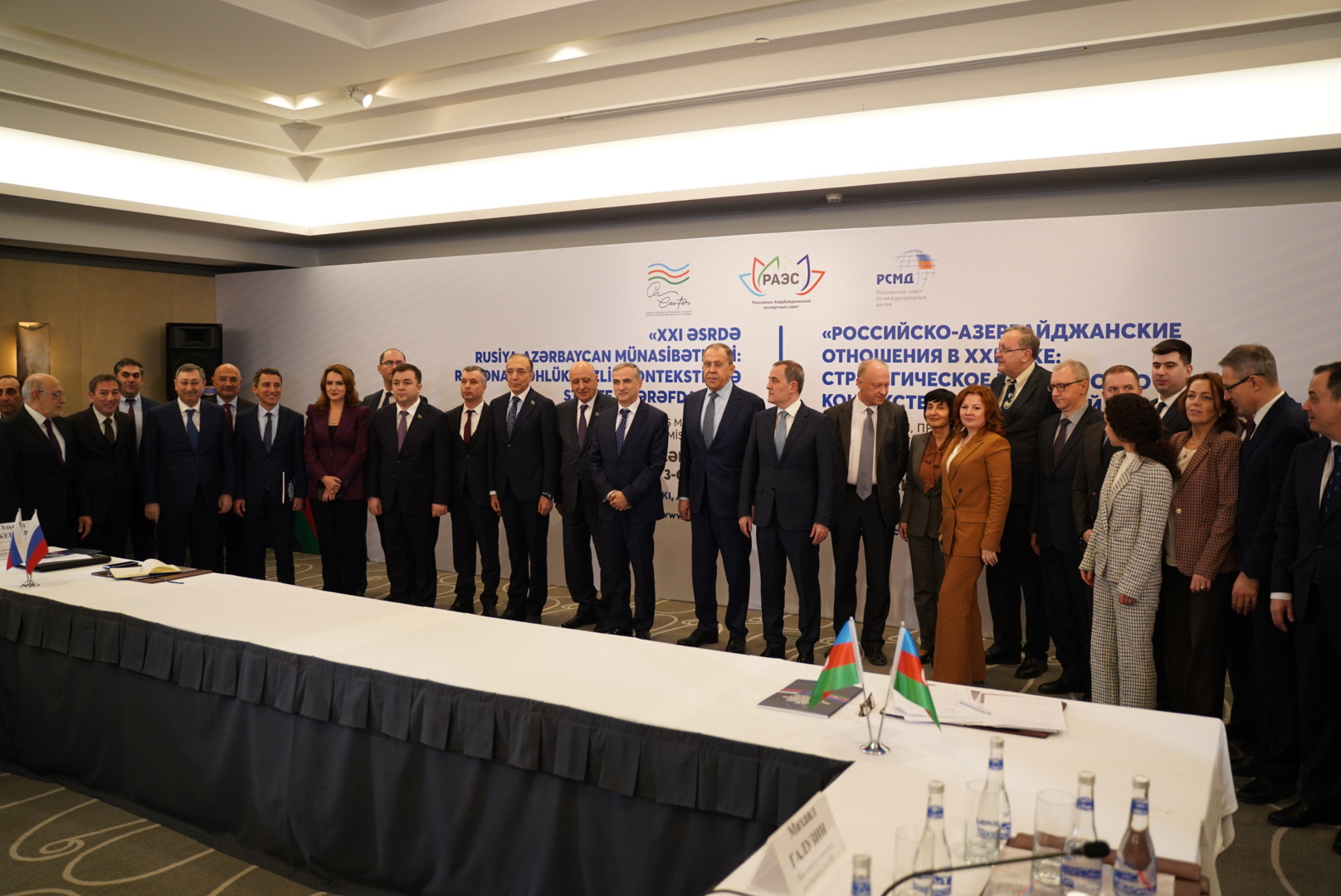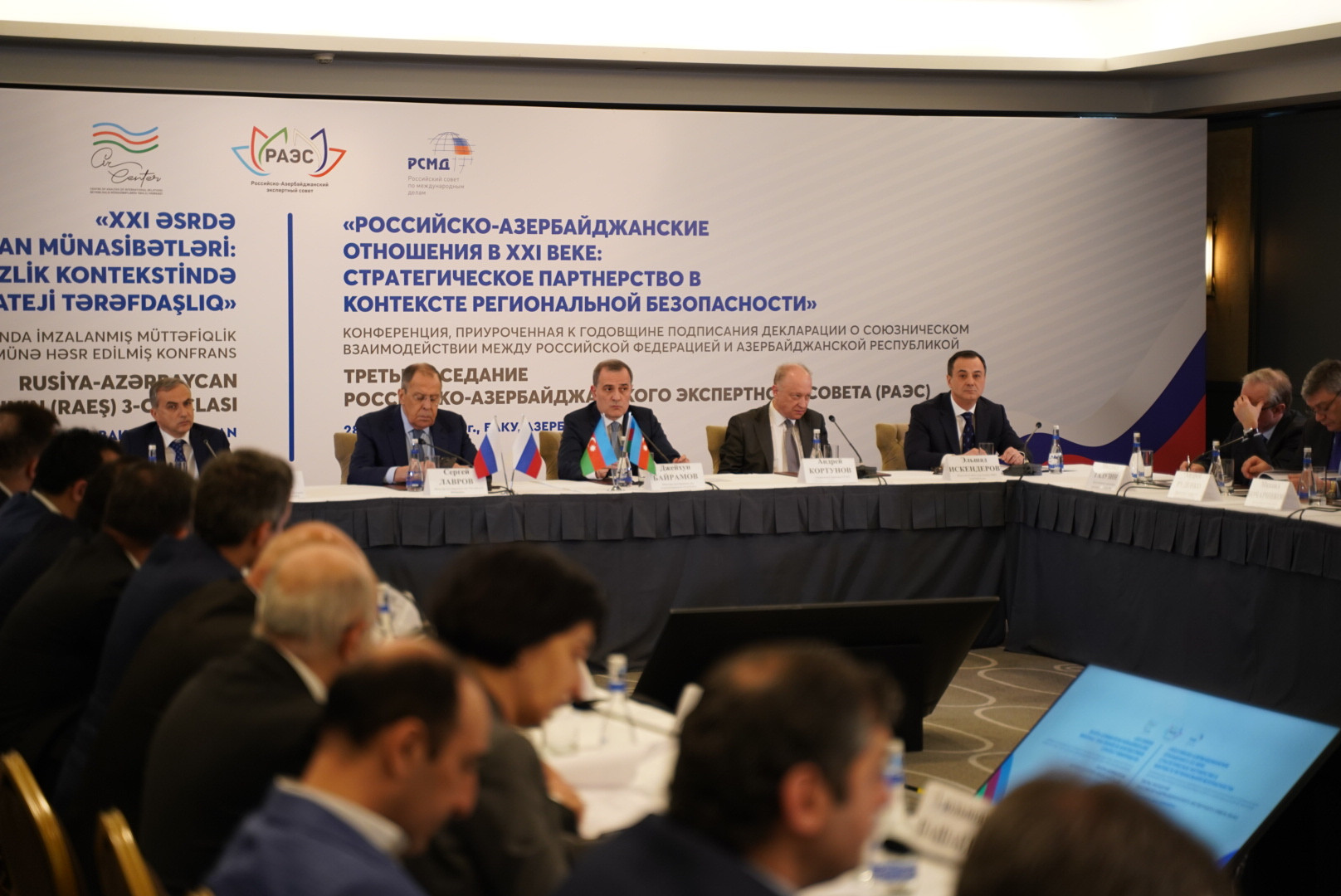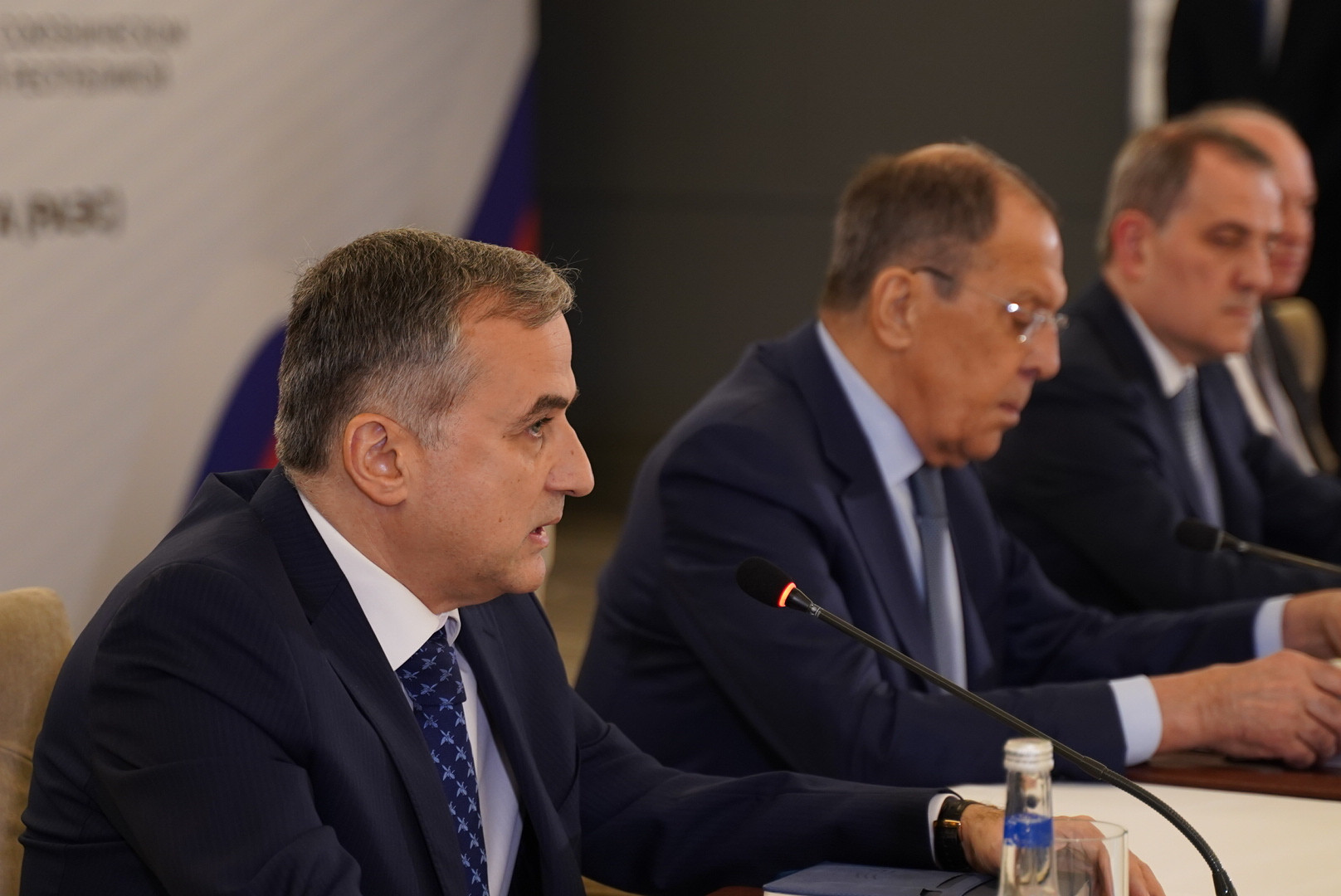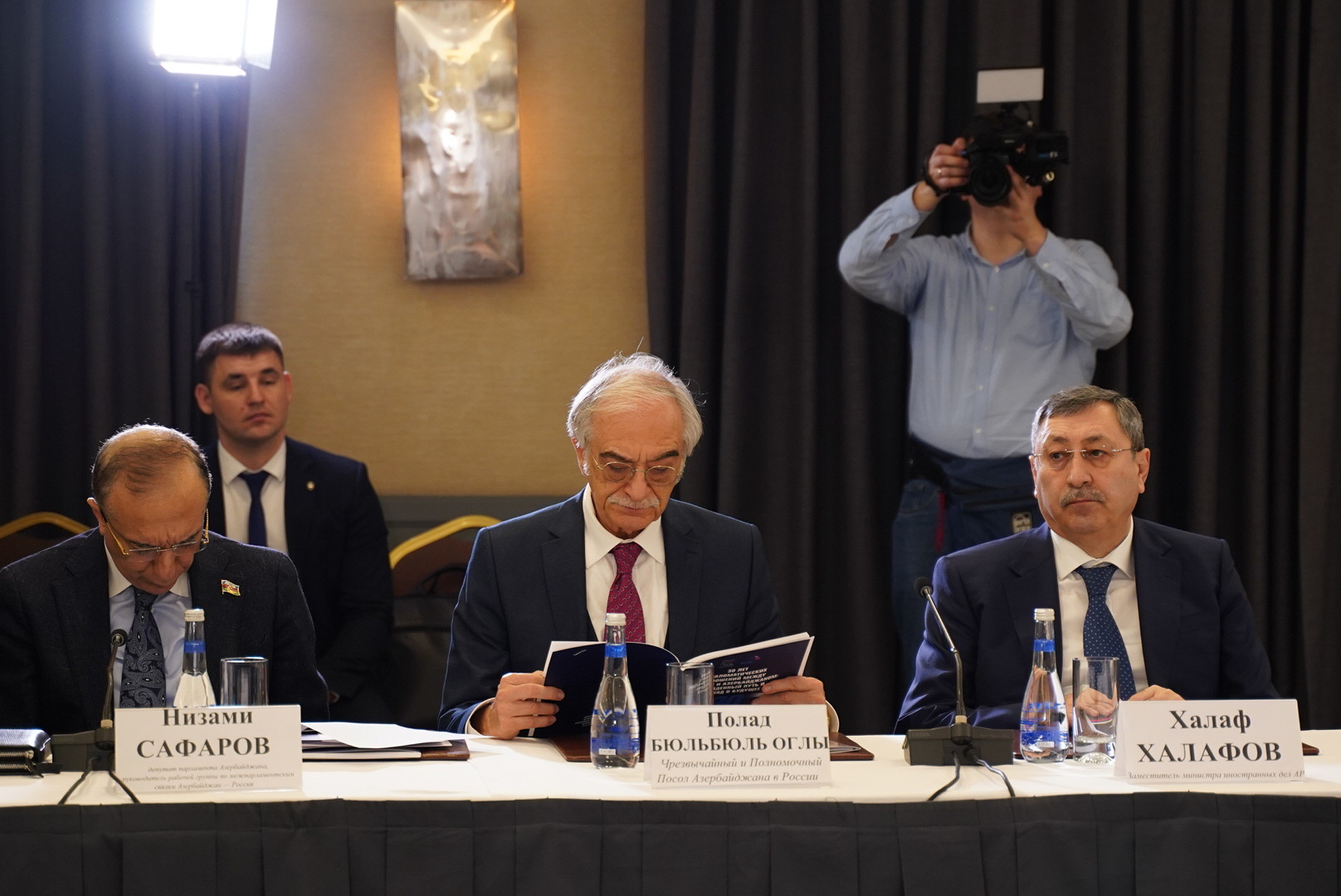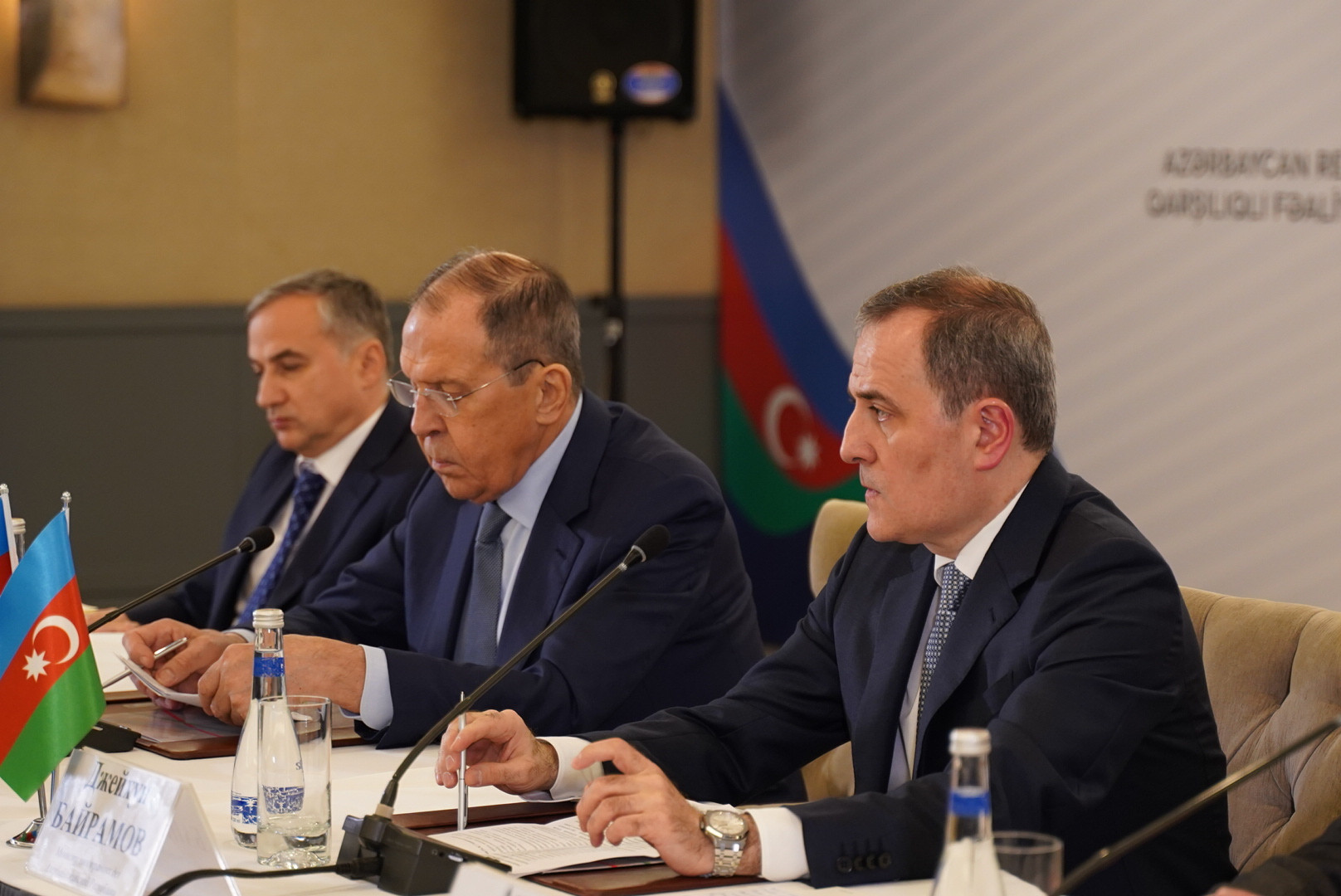The third meeting of the Russian-Azerbaijani Expert Council (RAEC) was held in Baku on February 28, 2023. The conference was titled “Russian-Azerbaijani relations in the 21st century: strategic partnership in the context of regional security” and coincided with the anniversary of signing the Declaration on allied interaction between the Republic of Azerbaijan and the Russian Federation. The event was organized by the Center for Analysis of International Relations (AIR Center) of Azerbaijan and the Russian International Affairs Council (RIAC).
Speaking at the high-level plenary session, Foreign Ministers of Azerbaijan and Russia Jeyhun Bayramov and Sergey Lavrov touched upon the positive dynamics in the development of bilateral relations between Moscow and Baku, based on a high level trust, mutual consideration of interests and pragmatism between the President of the Republic of Azerbaijan Ilham Aliyev and Vladimir Putin of Russian Federation. "Stable, predictable, and most importantly, sovereign policy makes Azerbaijan a valuable partner of the international community, including to Russia," said the Foreign Minister of Azerbaijan.
Both ministers stressed out the importance of the expert dialogue in terms of putting forward new ideas and evaluating the effectiveness of certain initiatives.
During the plenary session, the AIR Center Chairman Farid Shafiyev and the RIAC General Director Andrey Kortunov reported on the activity of the RAEC. They emphasized on the expediency of developing further direct contacts between Russian and Azerbaijani experts, aimed both at deepening the strategic partnership between the two countries as a whole and at a clearer understanding of approaches to global and regional issues.
The moderator of the session, Ambassador-at-Large of the Ministry of Foreign Affairs of the Republic of Azerbaijan Elshad Iskenderov noted that the participation of the Foreign Ministers of the two countries in the RAEC meeting is an indicator of what has been achieved in a short period since the establishment of a high level expert activity of the Council, which is in demand by the foreign policy communities of both countries.
During the session, the Ministers of Foreign Affairs were presented with commemorative copies of the first edition of the RAEC, compiling articles by Russian and Azerbaijani experts titled "30 years of diplomatic relations between Russia and Azerbaijan: achievements and perspectives."
During the discussions within the closed interactive dialogue sessions of the conference, the RAEC participants discussed Russian-Azerbaijani cooperation in political, economic, humanitarian and other spheres as well as approaches of Russia and Azerbaijan to the security architecture in the South Caucasus. In this regard, the commitment of Russia and Azerbaijan to the full implementation of the provisions of the Trilateral Statements of the leaders of the Russian Federation, the Republic of Azerbaijan and the Republic of Armenia of November 9, 2020, January 11 and November 26, 2021, October 31, 2022 was emphasized once again. It was also mentioned that the positions of Moscow and Baku on the consistent strengthening of the peace agenda in the South Caucasus, turning it into a region of sustainable peace, prosperity and stability are close.
On the topic of building a new regional transport and logistics infrastructure, experts noted that such complex projects as the “North-South” ITC, require active political and diplomatic efforts, a growing economy and a favorable business environment from all transit countries in order to be successful. An important condition for this is the willingness of the parties concerned to respect the sovereignty and legitimate interests of each other.
As a result of the meeting, the RAEC participants adopted a communiqué, which reflects the Council's practical recommendations regarding various aspects of deepening relations between the two countries. In particular, the expediency of submitting recommendations of the Council meeting to the relevant platforms of bilateral cooperation; the commitment to the earlier decision to hold meetings of the Council on a regular basis, as well as the usefulness of more frequent interim consultations of Council members between formal meetings, were emphasized.

